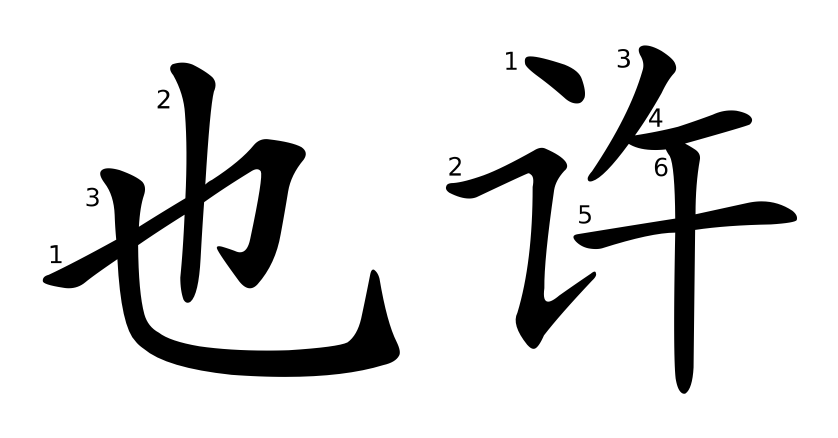Quick link:
上海離北京很遠/上海离北京很远、拿、睏/困、睡覺/睡觉、回家、火雞/火鸡、準備/准备、同屋、電影院/电影院、已經/已经、買/买、飛機票/飞机票、自在、當然/当然、地鐵/地铁、公共汽車/公共汽车、出租車/出租车、應該/应该、幸虧/幸亏、風景/风景、字典、或者、機場/机场、挺好、客氣/客气、也許/也许
上海離北京很遠/上海离北京很远 [Shànghǎi lí Běijīng hěnyuǎn] VP. Shanghai is far from Beijing
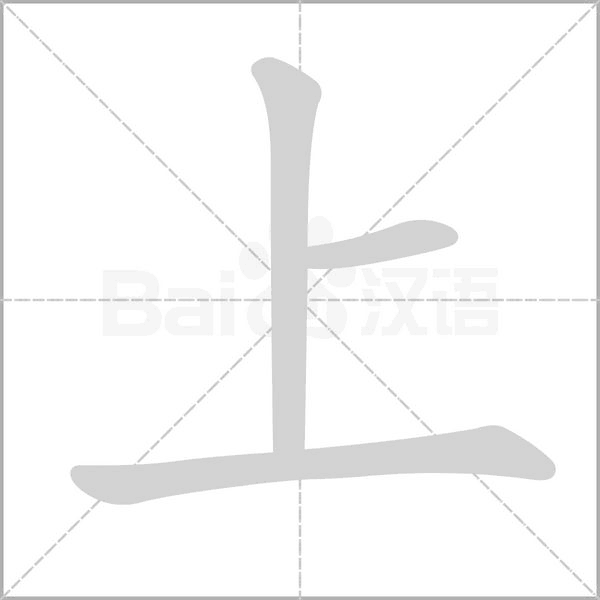
shàng: go up
radical: 一 (yī)
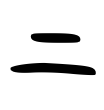
Chinese Studies Classroom: In Oracle Bone Script, the character “上” consists of a long horizontal line representing a baseline and a short horizontal line above it, indicating a position above the baseline. Thus, the original meaning of “上” is “high” or “above.” By extension, it refers to higher ranks or superior quality. It can also function as a verb, meaning to ascend, move upward, or advance.
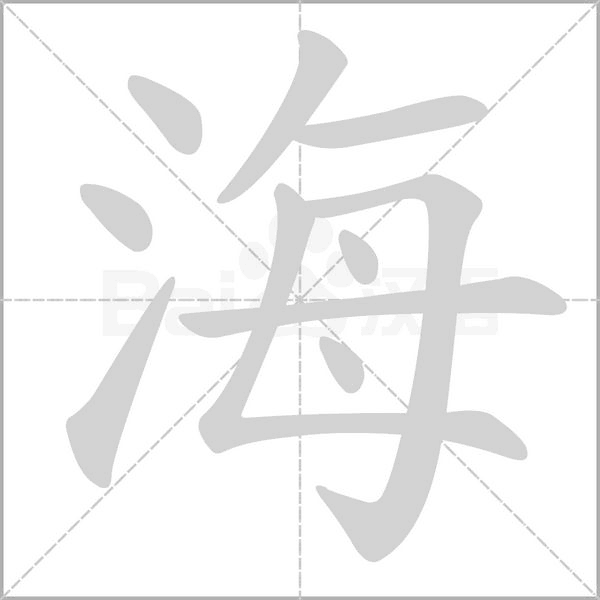
hǎi: sea
radical: 氵(shuǐ, water)
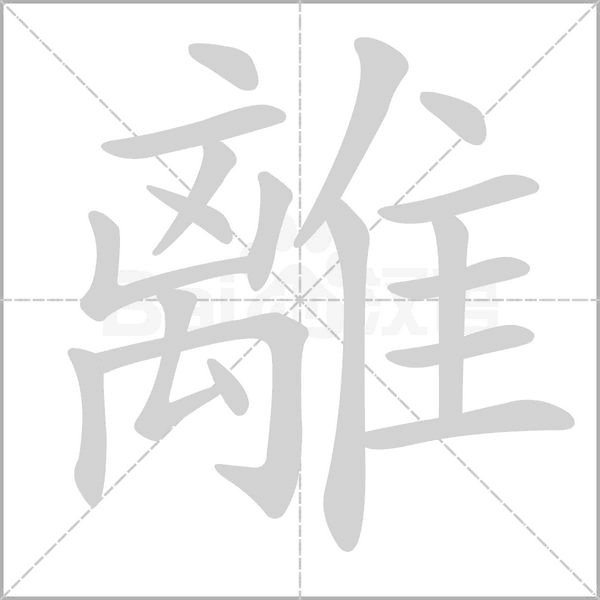
lí: be away from
radical: 亠 (tóu)
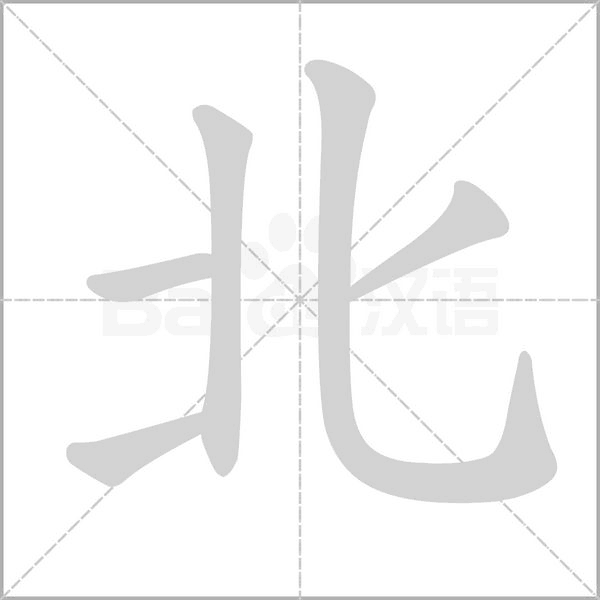
běi: north
radical: 匕 (bǐ)
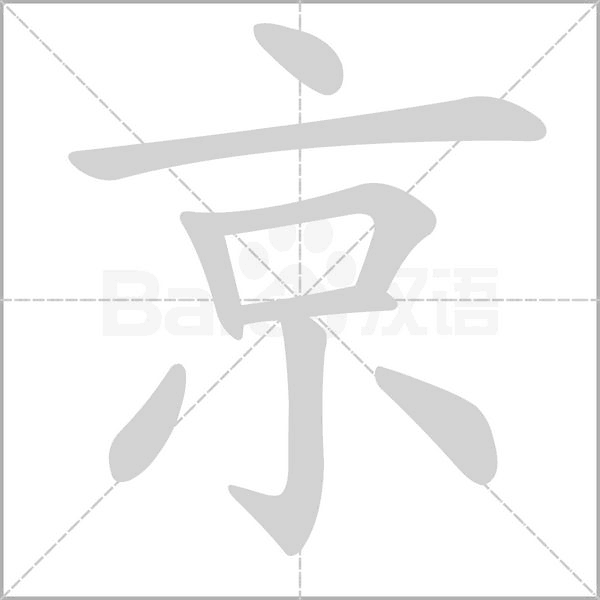
jīng: the capital of a country
radical: 亠 (tóu)
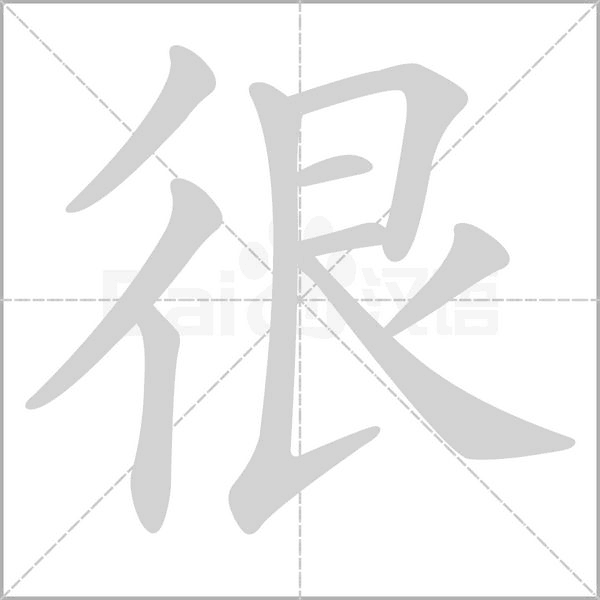
hěn: very
radical: 彳 (chì; taking small, slow steps, walking and stopping intermittently)
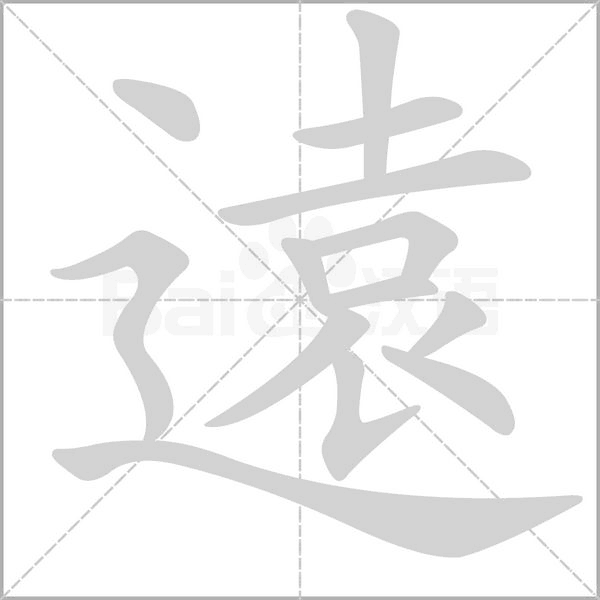
yuǎn: far
radical: 辶 (chuò, walking)
Simplified character:

拿 [ná] V. hold; take; have a firm grasp of. 我去拿書/我去拿书。I will go get the book.
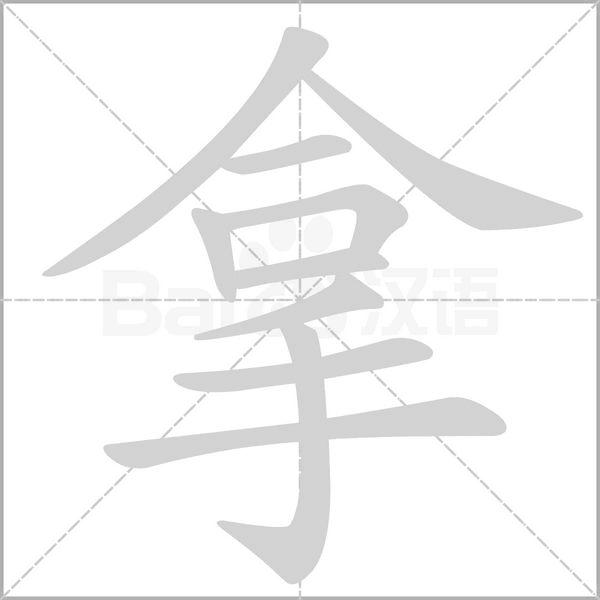
ná: hold; take
radical: 人 (rén; person)
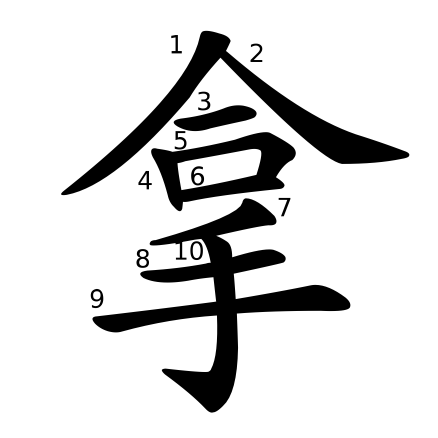
Both traditional and simplified characters are written like this.
睏/困 [kùn] Adj. sleepy. 我現在很睏/我现在很困。I’m very sleepy now.
.gif)
kùn: sleepy
radical: 目 (mù; eye)
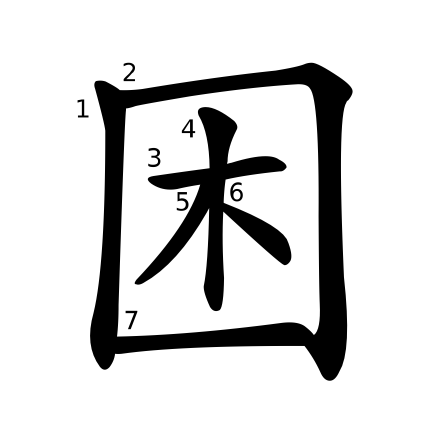
The simplified form of this character is written like this.
睡覺/睡觉 [shuìjiào] V-O. to sleep. 我想睡覺了/我想睡觉了。I feel like sleeping.
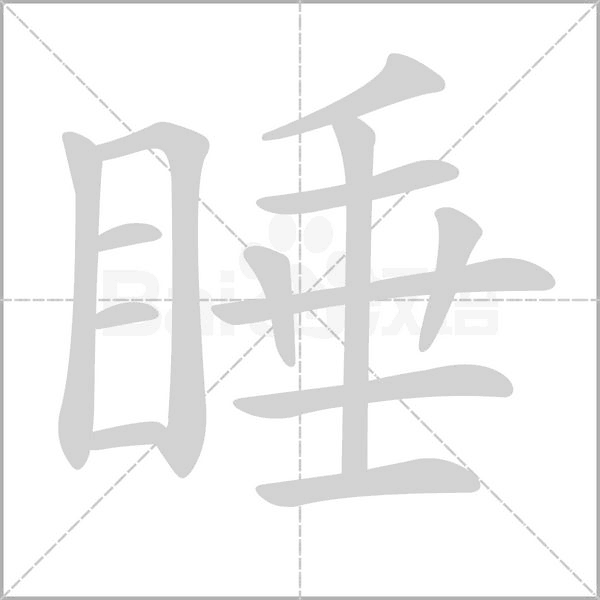
shuì: sleep
radical: 目 (mù; eye)
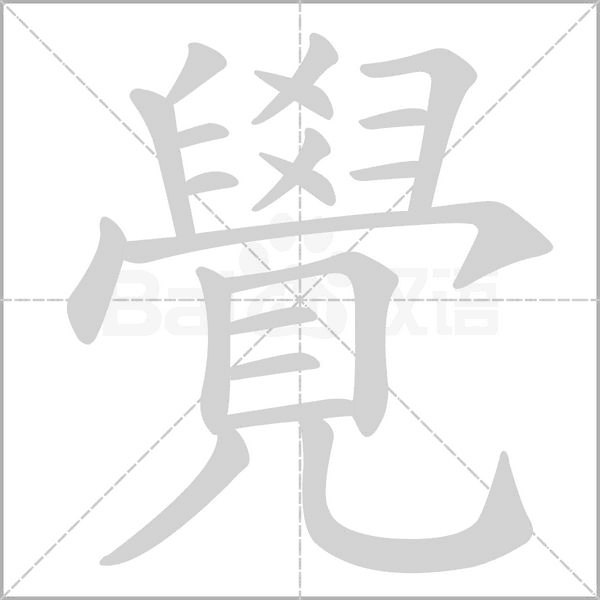
jiào: sleep
radical: 見 (jiàn, see; catch sight of)
Traditional character:
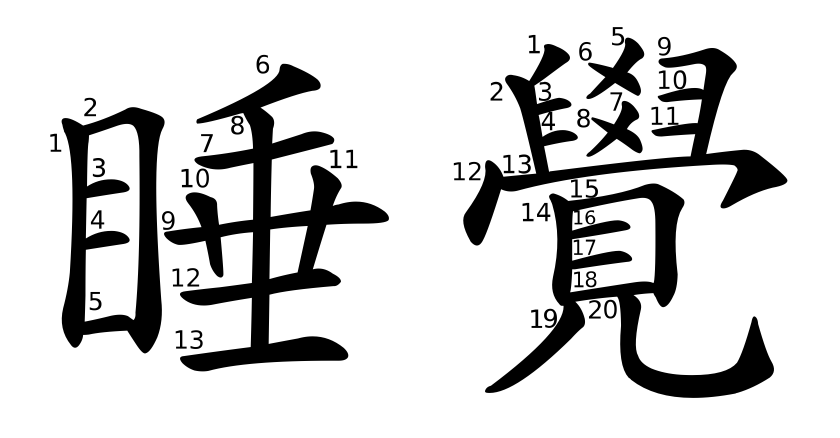
Simplified character:
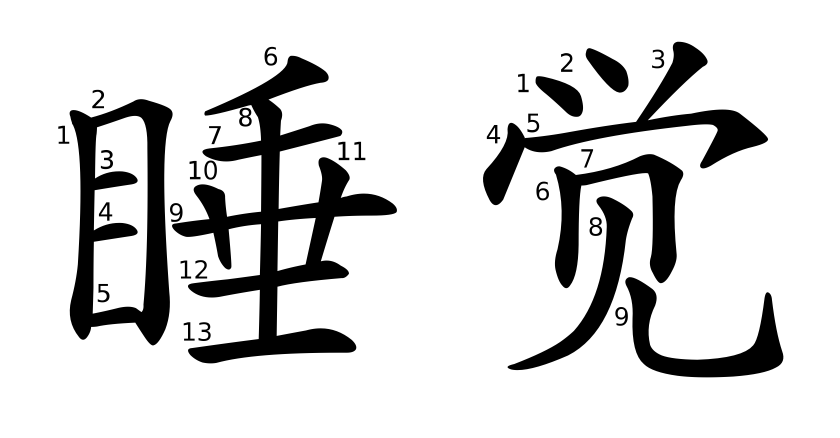
回家 [huí jiā] V-O. to return home. 我下週回家/我下周回家。I’ll be home next week.

huí: return
radical: 囗 (wéi; enclose)
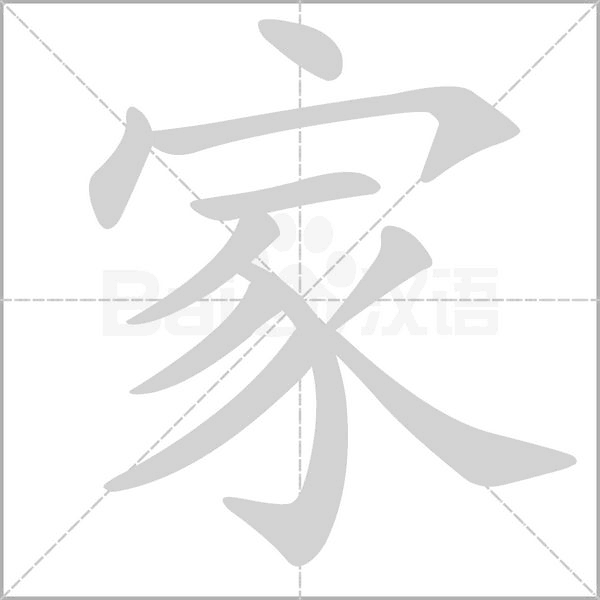
jiā: home
radical: 宀 (mián, roof)

Chinese Studies Classroom: In oracle bone script, the upper part of the character “家” (宀) represents a roof, while the lower part (豕) resembles a pig. The original meaning of “家” was a house or dwelling, and it later extended to mean “family.”
Both traditional and simplified characters are written as:
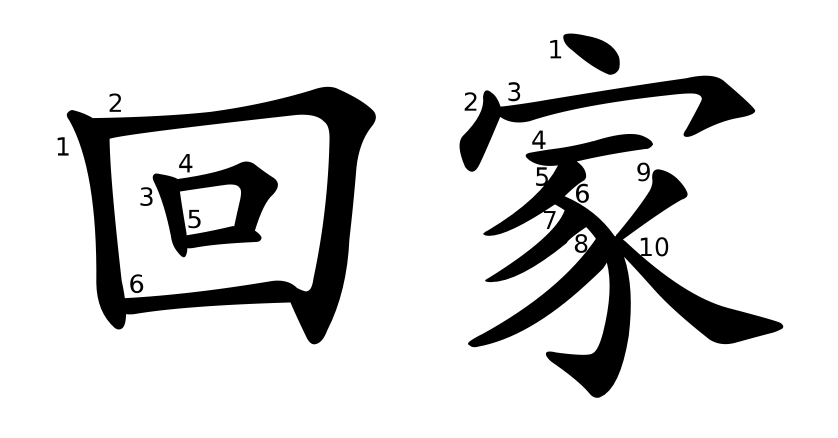
火雞/火鸡 [huǒjī] N. turkey. 火雞很好吃/火鸡很好吃。Turkey is delicious.
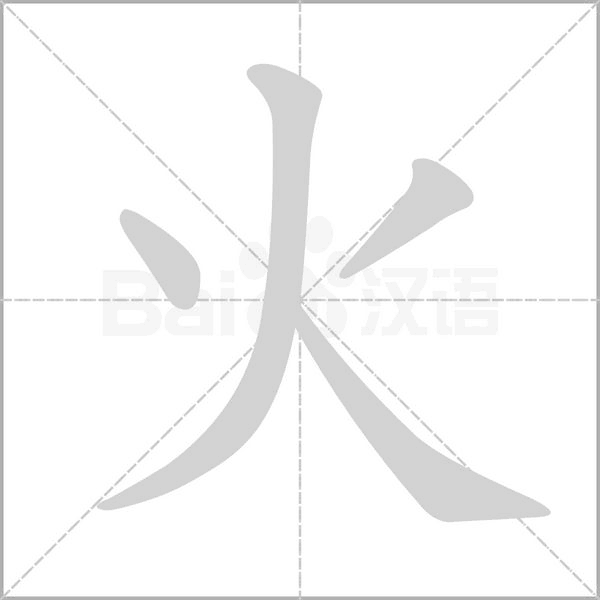
huǒ: fire
radical: 火

Chinese Studies Classroom: The character “火” (huǒ) is a pictogram, and its oracle bone script form resembles the appearance of a burning flame.
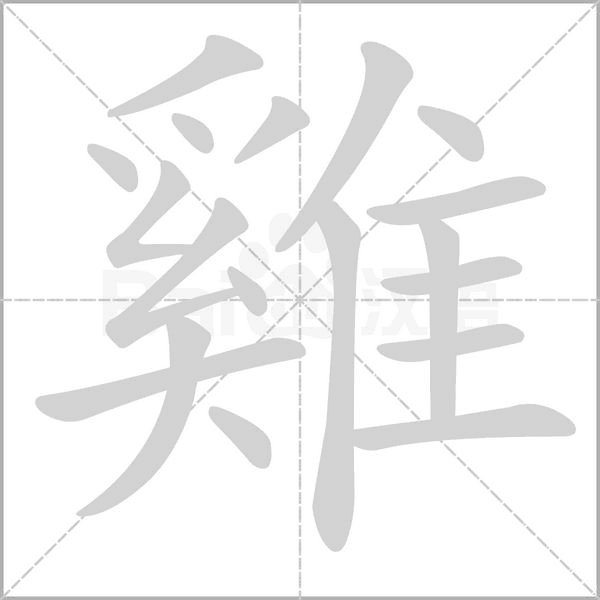
jī: chicken
radical: 隹 (zhuī; a short-tailed bird)
Simplified character:
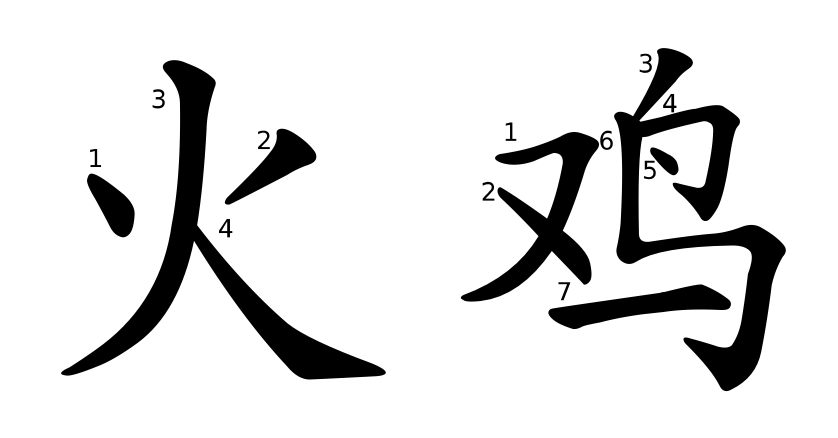
準備/准备 [zhǔnbèi] V. to plan. 我要準備考試了/我要准备考试了。I have to study for an exam.
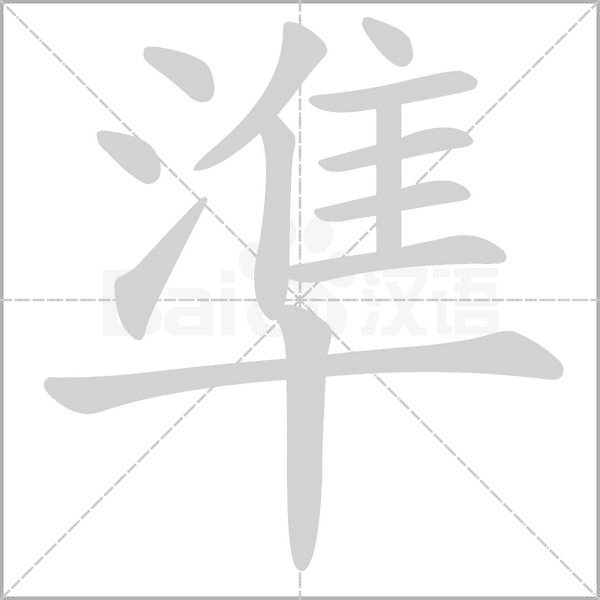
zhǔn: act up to
radical: 氵(shuǐ; water)
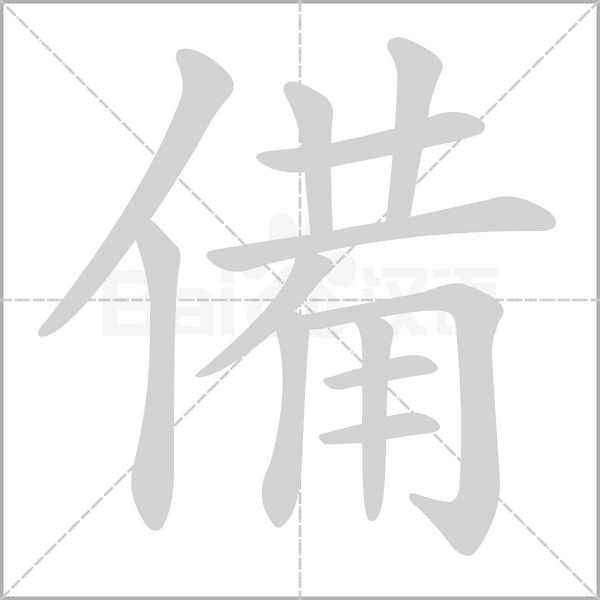
bèi: prepare; provide with; get ready
radical: 亻(rén; person)
Simplified character:
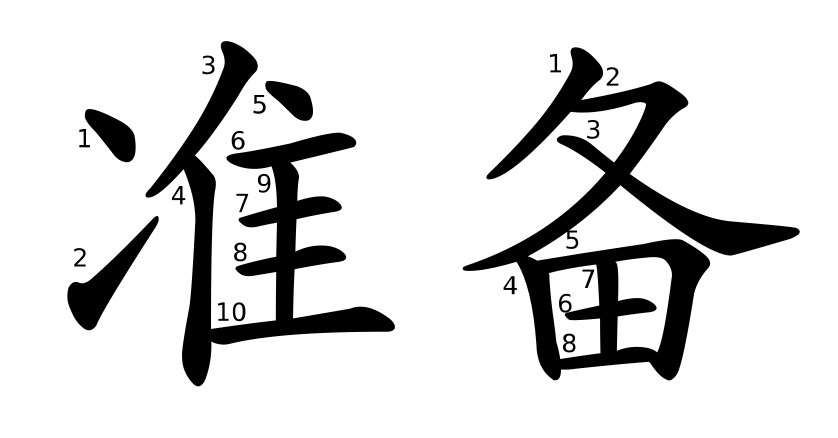
同屋 [tóngwū] N. room mate. 我有倆個同屋/我有两个同屋。I have two roommates.
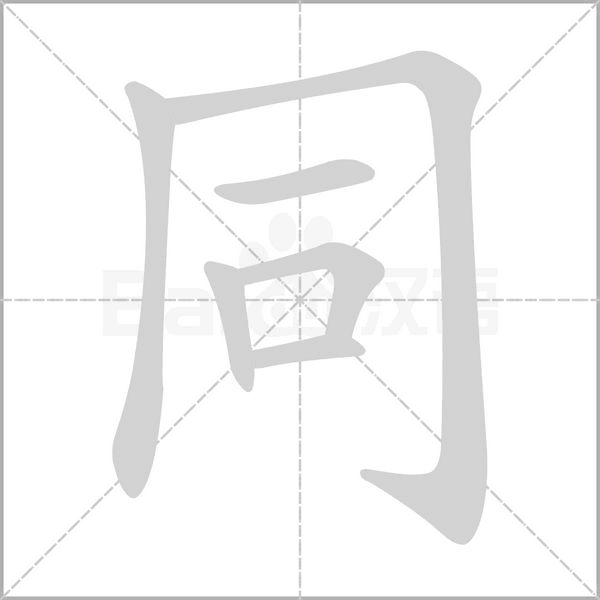
tóng: same; similar; alike; like
radical: 冂 、口
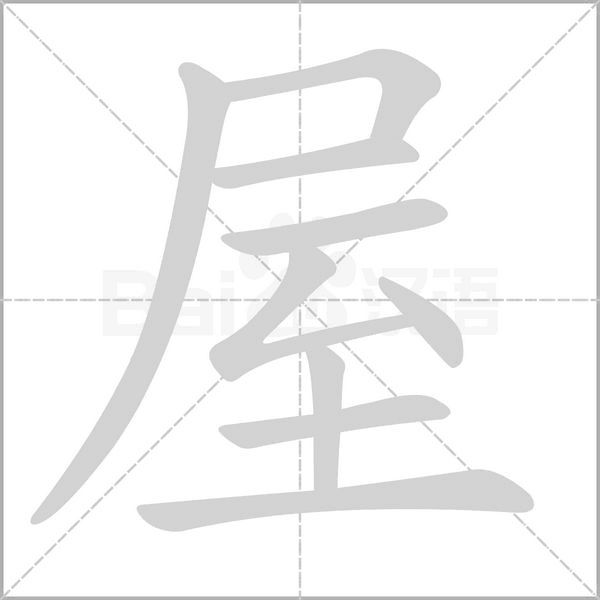
wū: house; room
radical: 尸
Both traditional and simplified characters are written as:
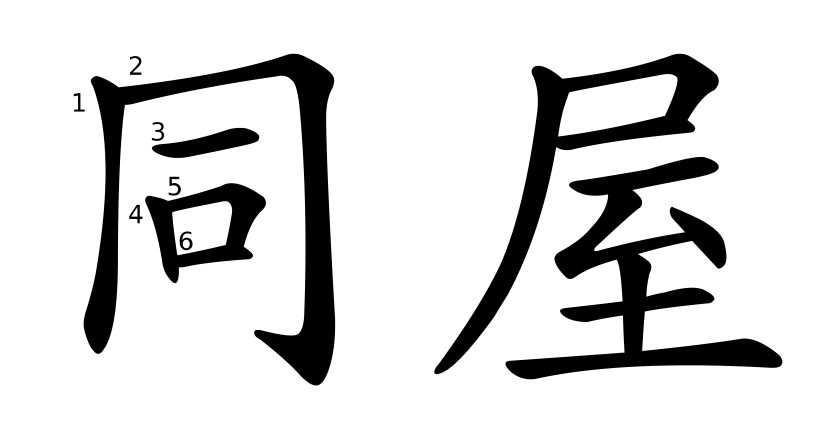
電影院/电影院 [diànyǐngyuàn] N. cinema. 我喜歡去電影院看電影/我喜欢去电影院看电影。I like going to the cinema to see movies.
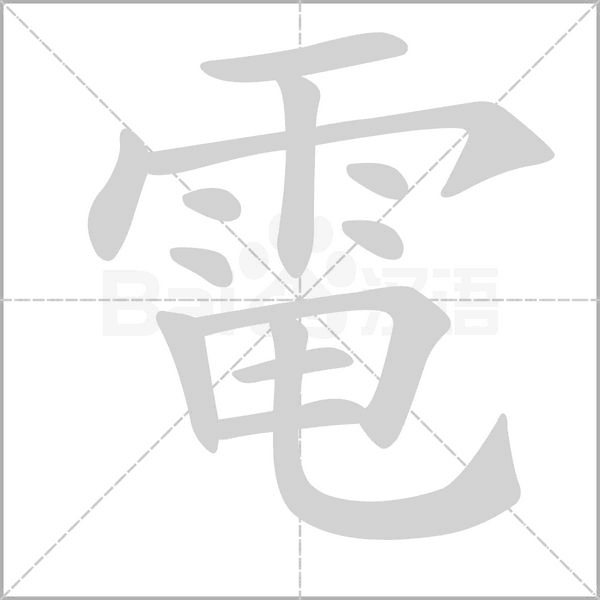
diàn: electricity
radical: 雨 (yǔ; rain)
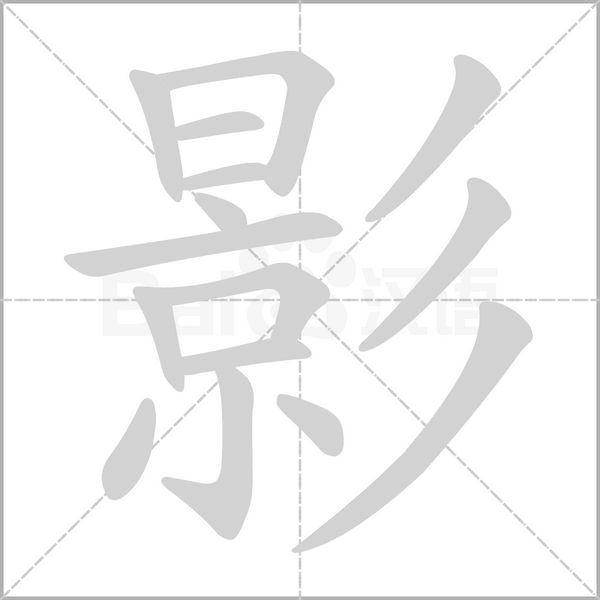
yǐng: shadow
radical: 彡 (shān)
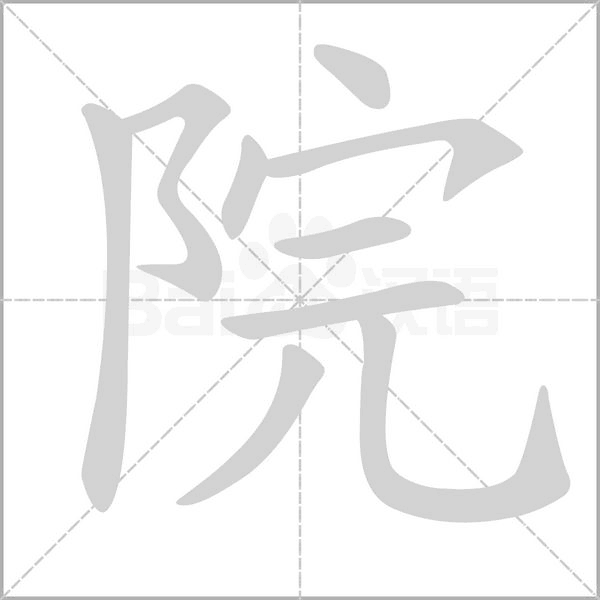
yuàn: yard; a walled courtyard
radical: 阝(fù; a small hill)

Chinese Studies Classroom: The radical “阝” can appear on either the left or the right side of a Chinese character. When it is on the left, it is derived from the character “阜” (fù). The original meaning of “阜” is a hill, so when “阝” appears on the left side of a character, the character’s meaning is often related to mountains or terrain, such as “险” (xiǎn, dangerous), “阴” (yīn, shade), and “阳” (yáng, sun).
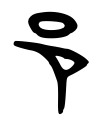
Chinese Studies Classroom: The radical “阝” can appear on either the left or the right side of a Chinese character. When it is on the right side, it is derived from the character “邑” (yì), which is associated with cities. Therefore, when this radical appears on the right side, the character’s meaning is often related to towns or place names, such as “都” (dū, capital), “郊” (jiāo, suburb), “邦” (bāng, state).
Traditional character:
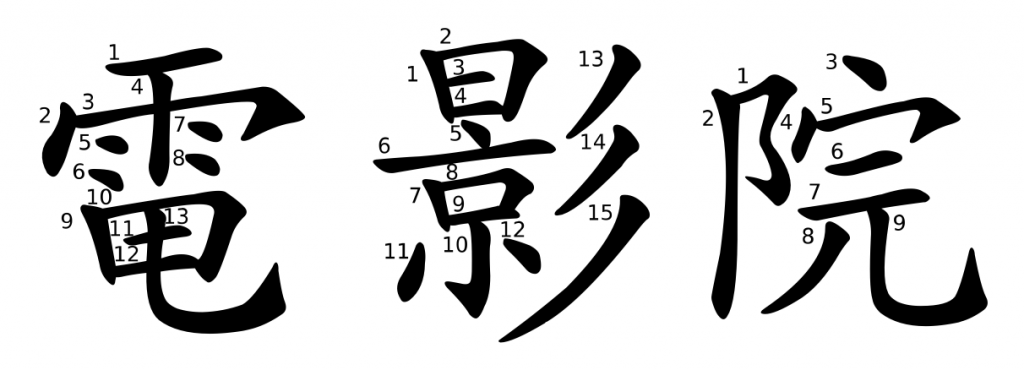
Simplified character:
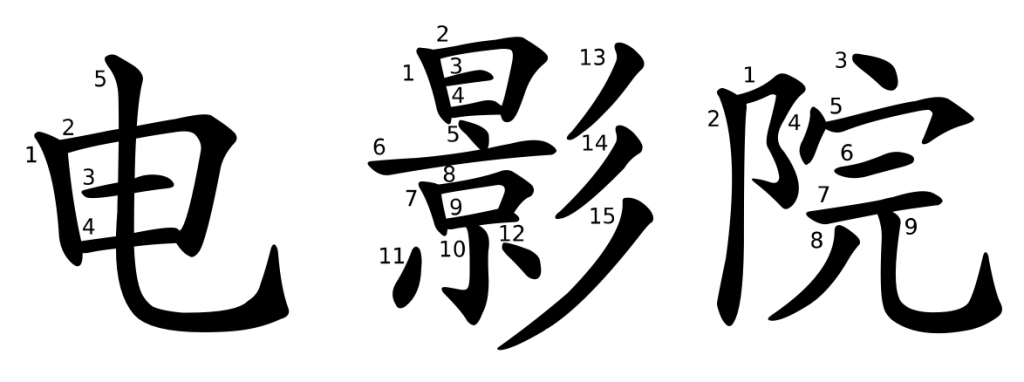
已經/已经 [yǐjīng] Adv. already. 我已經寫完作業了/我已经写完作业了。I have finished my homework.
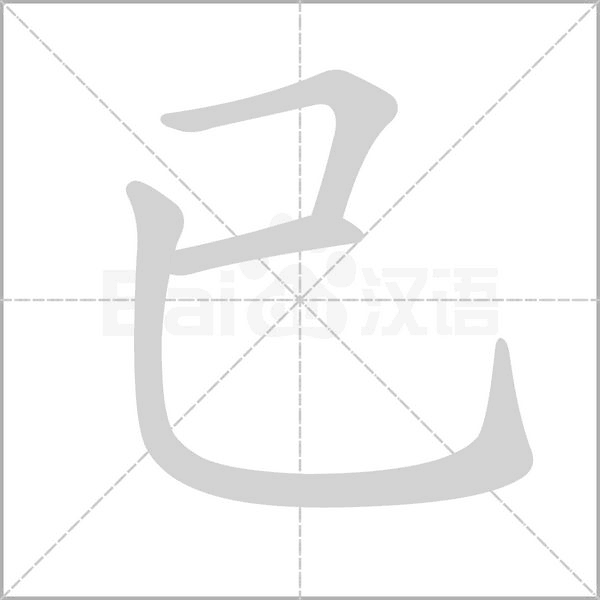
yǐ: already
radical: 已
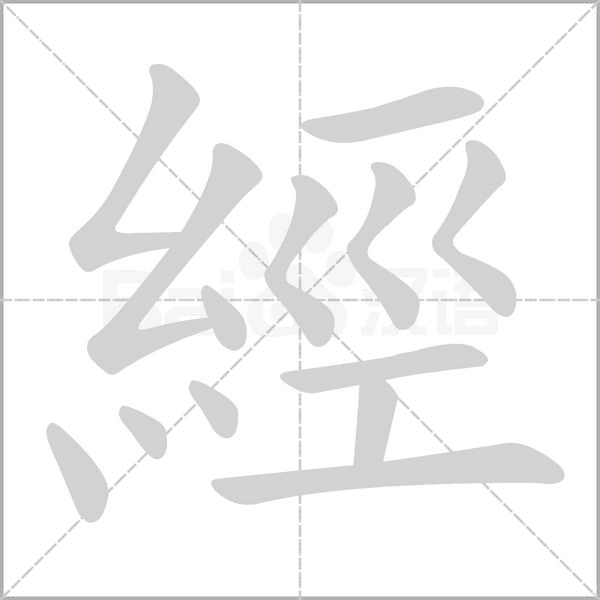
jīng: go through; undergo; experience
radical: 糸 (sī; silk)
Traditional character:
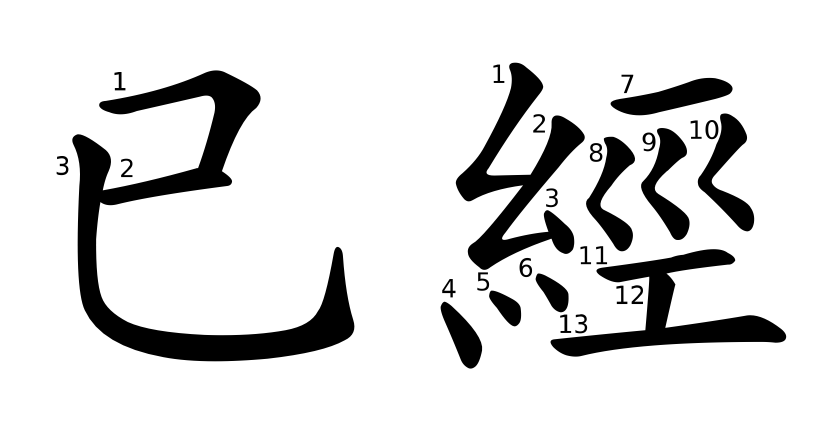
Simplified character:
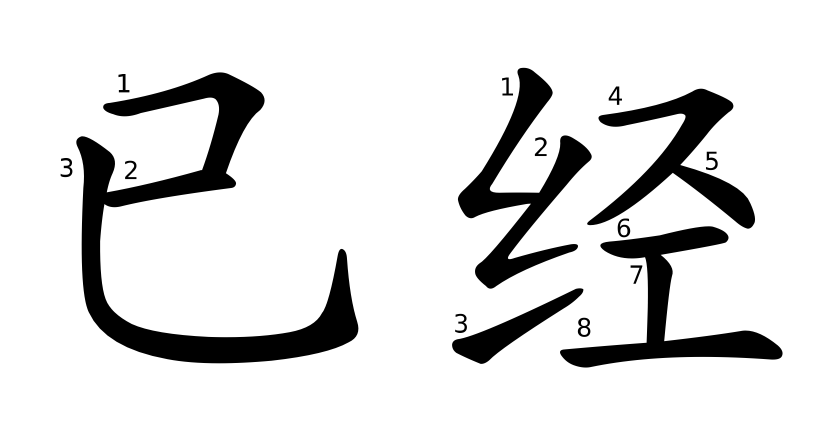
買/买 [mǎi] VP. buy. 我想買書/我想买书。I want to buy books.
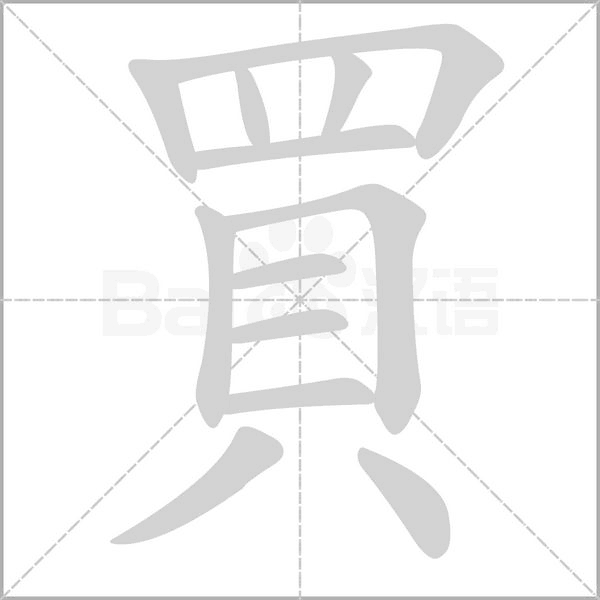
mǎi: to buy
radical: 貝 (bèi; shell; money)

Chinese Studies Classroom: In Oracle Bone Script, the character “買” (mǎi) is composed of two parts: the top element is “网” (wǎng; net), and the bottom is “貝” (bèi; shell). In ancient times, shells were used as currency and considered valuable items. Thus, the original meaning of “買” was to use a large net to gather wealth, symbolizing commercial transactions. Before the Han Dynasty, “買” encompassed both the meanings of buying and selling. However, during the Han Dynasty, its meaning became more specific, referring exclusively to “buying.” To indicate “selling,” the character was modified by adding “出” (out) to the top, forming “賣/卖” (mài).
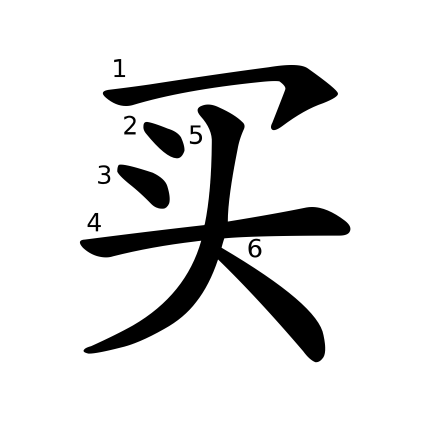
The simplified form of this character is written like this.
飛機票/飞机票 [fēijī piào] N. plane ticket. 我想今天買飛機票/我想今天买飞机票。I’d like to buy a plane ticket today.
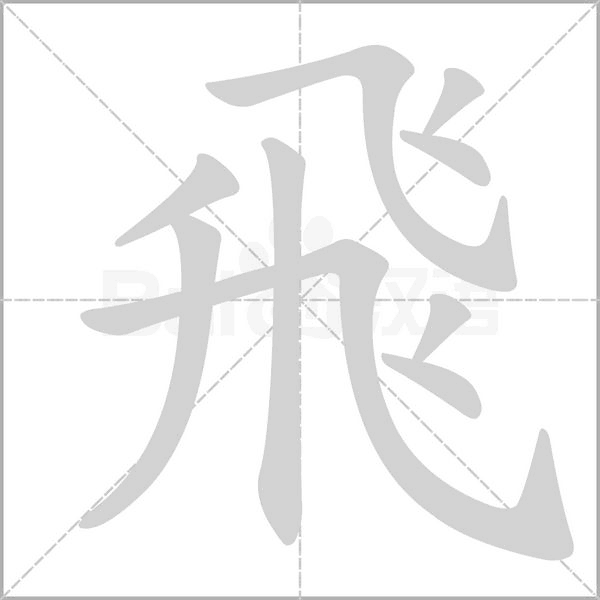
fēi: fly
radical: 飞 (fēi; fly)
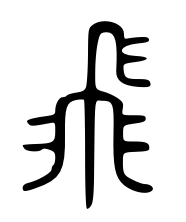
Chinese Studies Classroom: In ancient script, “飛” (fēi) is a pictographic character. The upper part resembles a bird’s head, and the lower part depicts two wings. The meaning of this character is “to fly.”
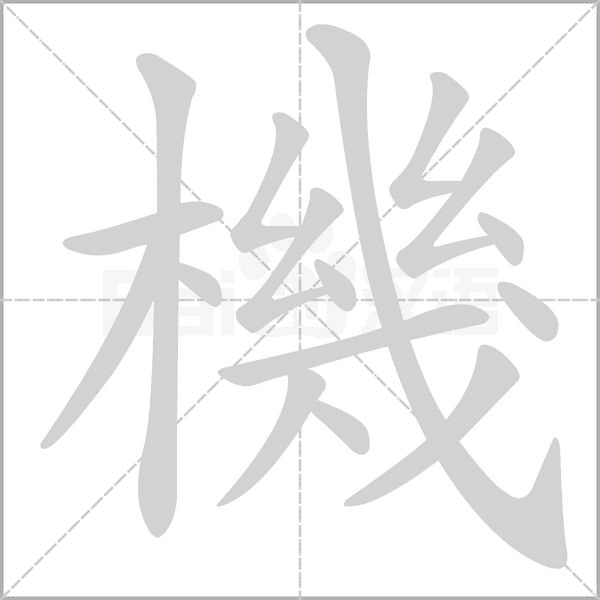
jī: machine; engine
radical: 木 (mù; wood)
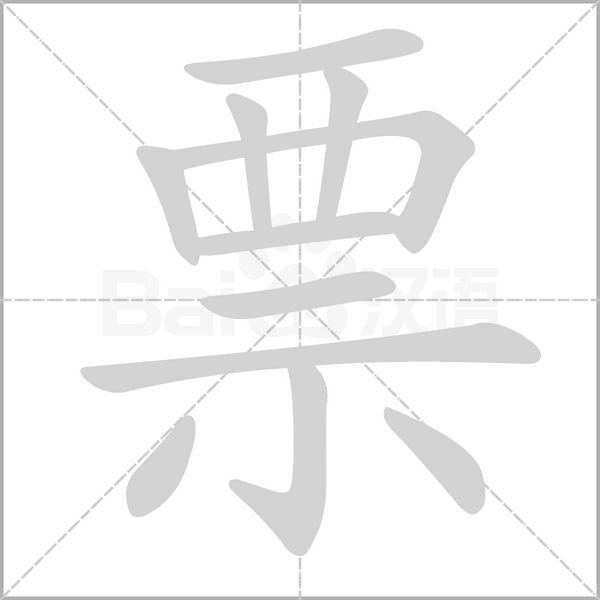
piào: ticket
radical: 覀
Simplified character:
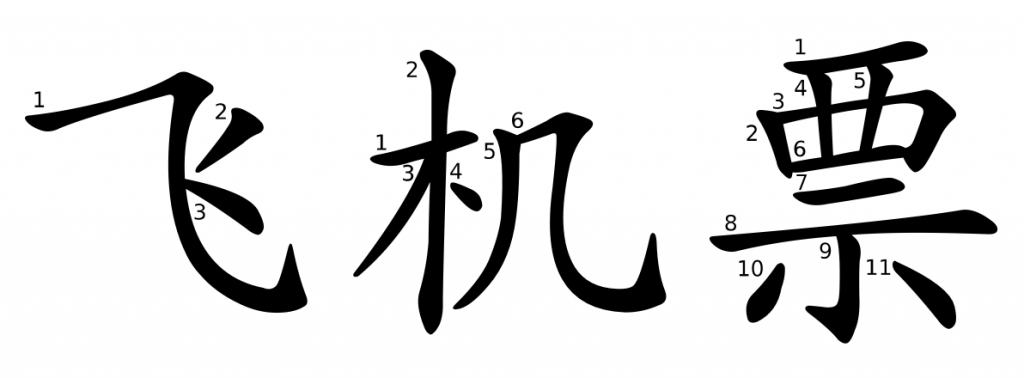
自在 [zì.zài] Adj. comfortable; at ease. 跟女友爸爸吃飯的時候,我很不自在 / 跟女友爸爸吃饭的时候,我很不自在。I felt uncomfortable when I had dinner with my girlfriend’s father.
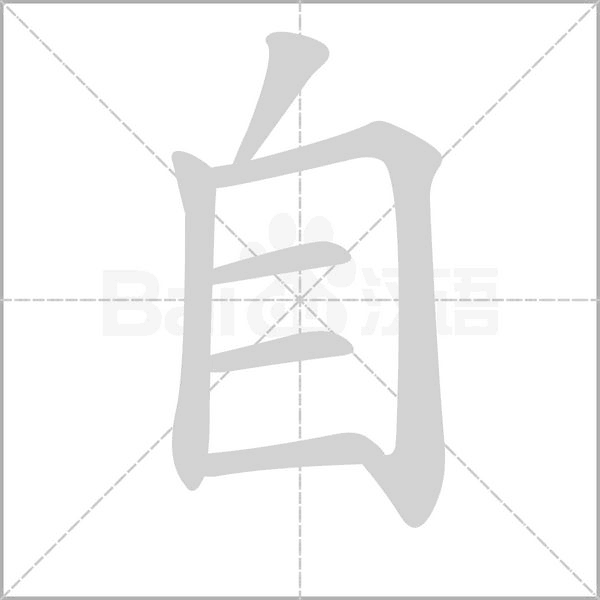
zì: self
radical: 自

Chinese Studies Classroom: The ancient form of the character “自” resembles a person’s nose, and later it was borrowed to represent the first-person pronoun, meaning “oneself.”
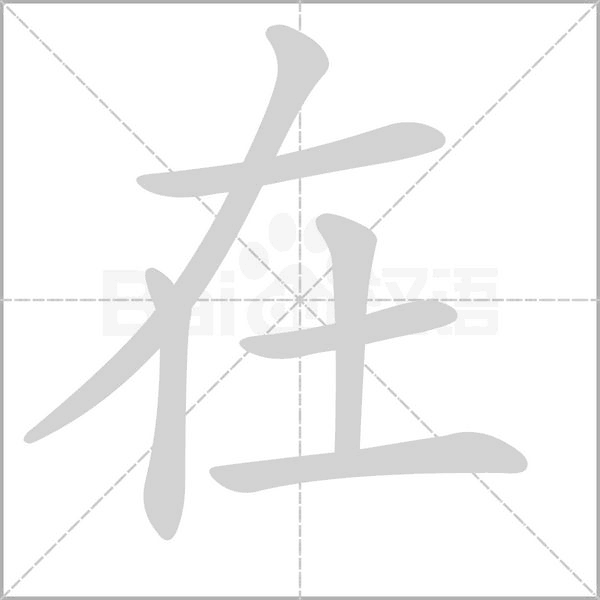
zài: being, existence
radical: 土 (tǔ: earth)
Both traditional and simplified characters are written as:
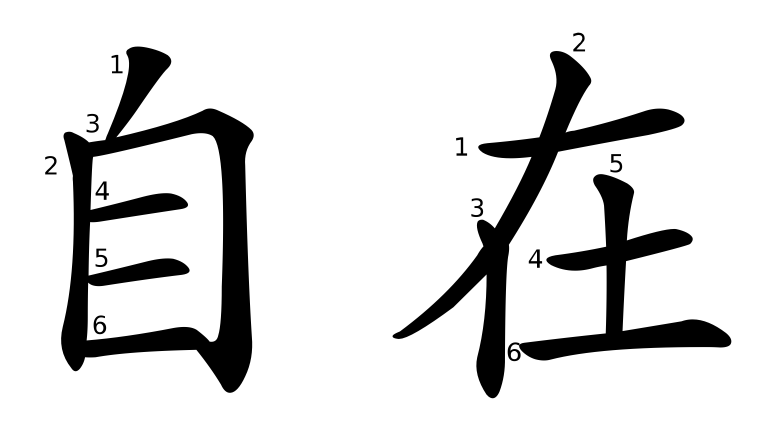
當然/当然 [dāngrán] Adv. of course. 我是美國人,當然會說英語 / 我是美国人,当然会说英语。I’m American. Of course I speak English.
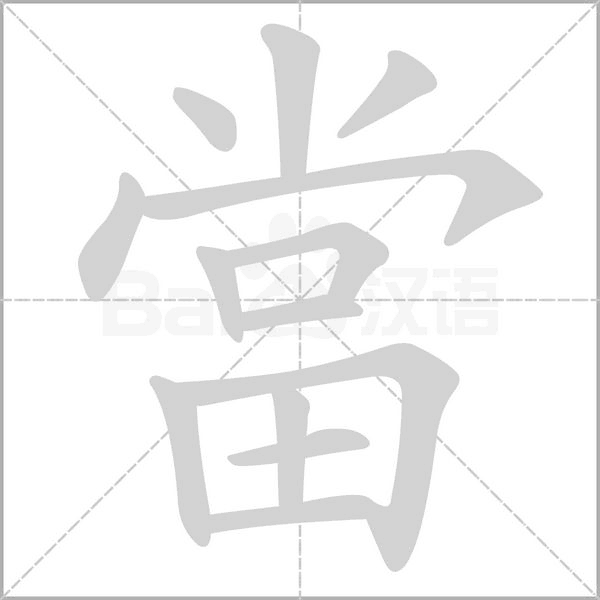
dāng: should; ought to
radical: 田
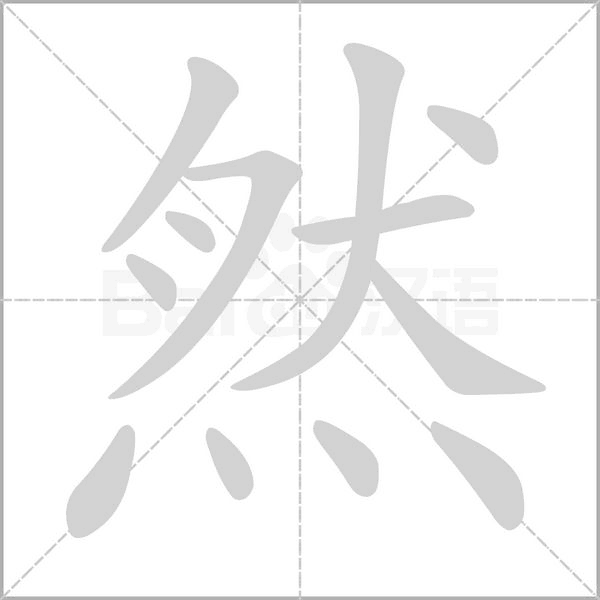
rán: so
radical: 灬 (huǒ; fire)
Traditional character:
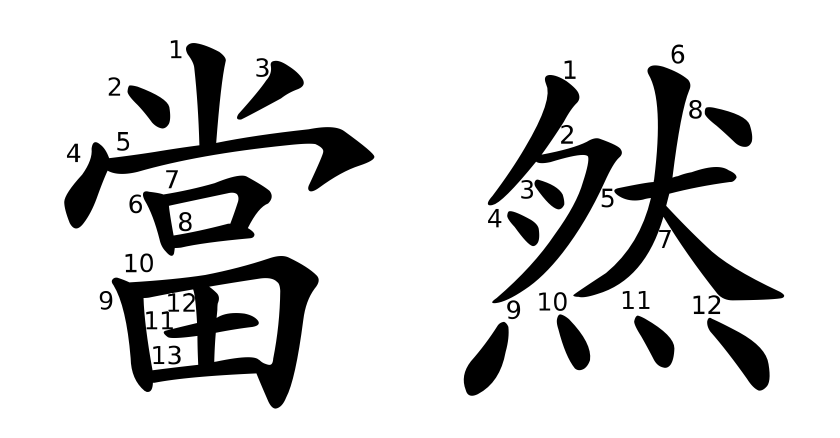
Simplified character:
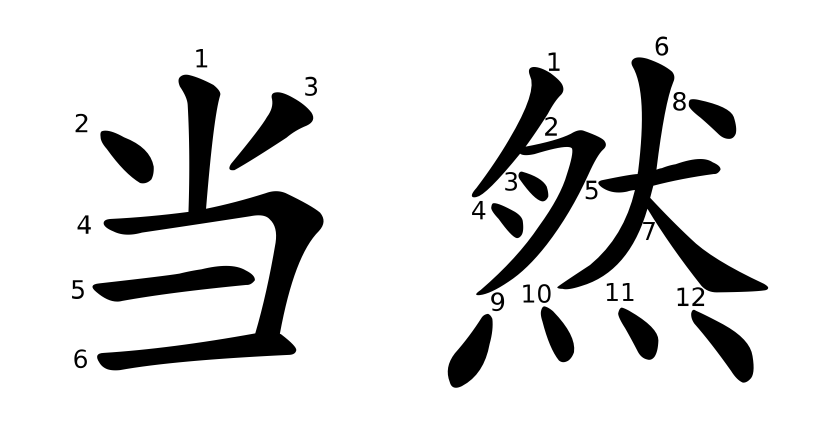
地鐵/地铁 [dìtiě] N. subway. 我不喜歡坐地鐵/我不喜欢坐地铁。I don’t like taking the subway.
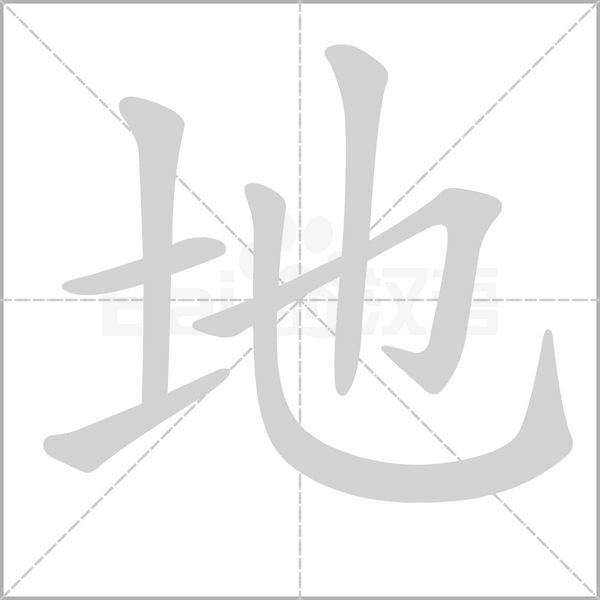
dì: ground; underground
radical: 土 (tǔ: earth)
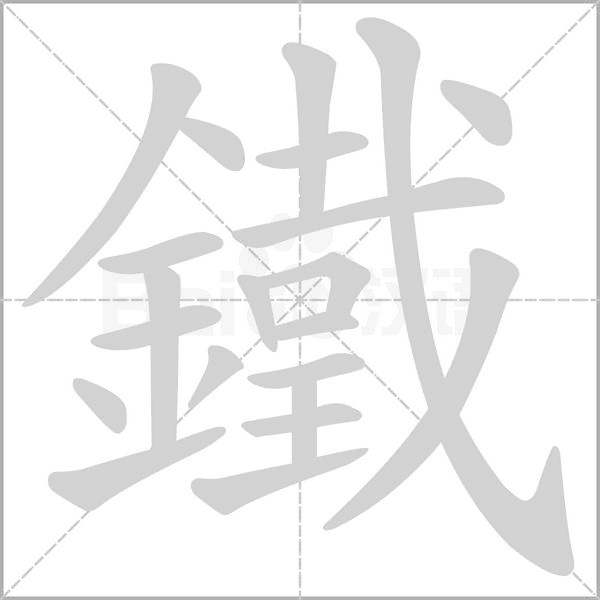
tiě: iron; railway
radical: 金 (jīn; metal)
Simplified character:
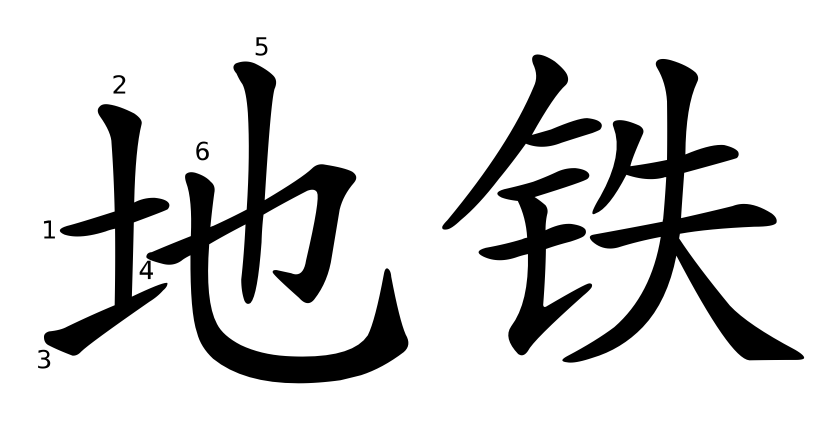
公共汽車/公共汽车 [gōnggòng qìchē] N. bus. 我們可以坐公共汽車 / 我们可以坐公共汽车。We can take the bus.
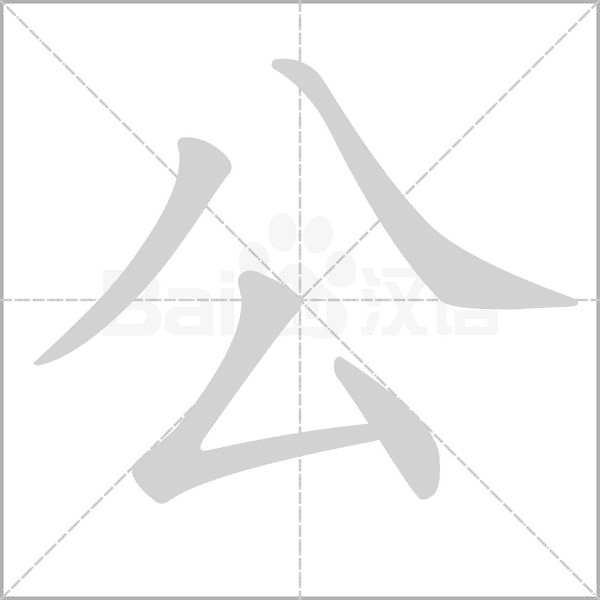
gōng: public; for public use
radical: 八
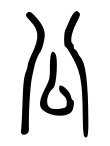
Chinese Studies Classroom: In ancient script, the character “公” (gōng) depicts two arms embracing within, symbolizing possession or personal belongings. The strokes on the left and right sides represent equal division. Therefore, the earliest meaning of “公” was “to distribute equally,” which later extended to meanings such as “public” or “common.”
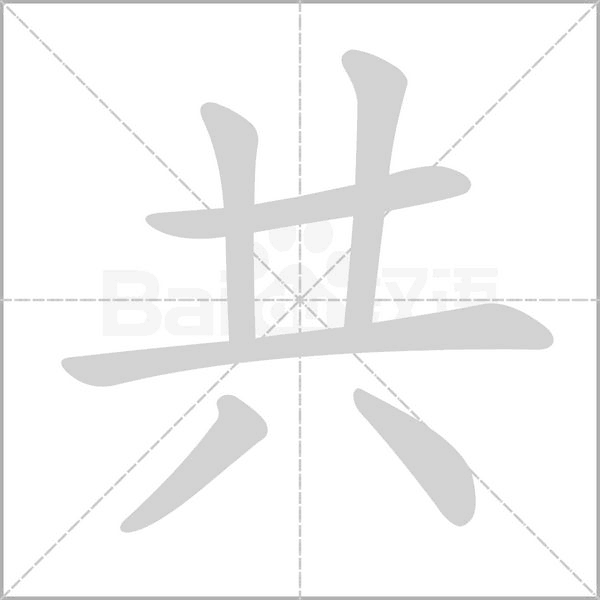
gòng: common; shared
radical: 八
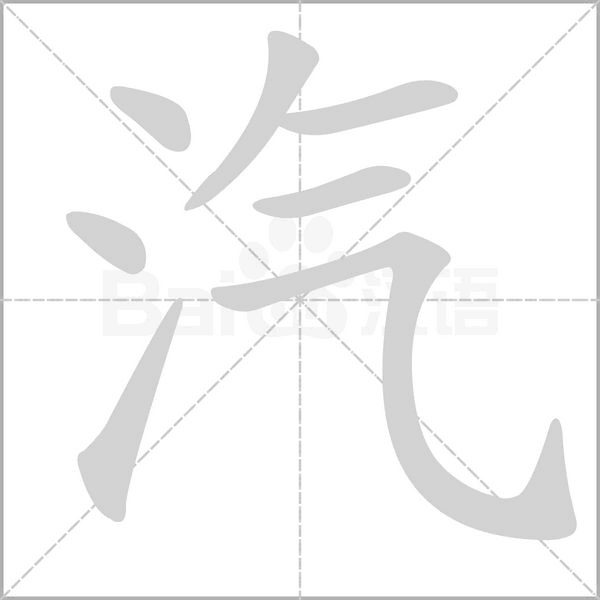
qì: steam; gas
radical: 氵(shuǐ; water)
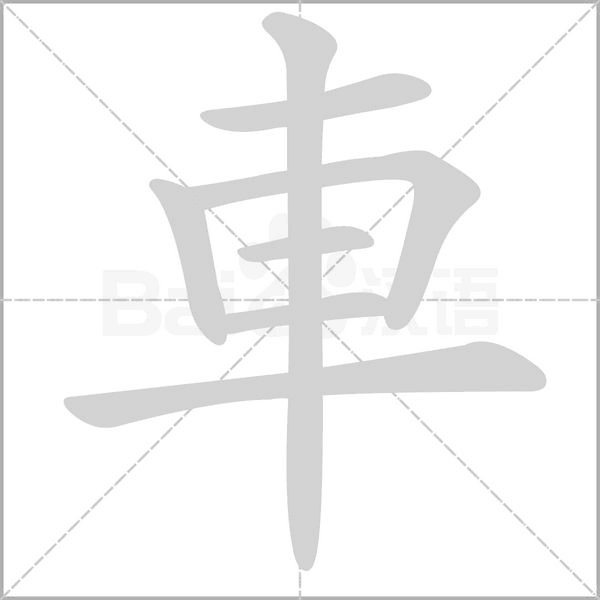
chē: vehicle; means of transportation
radical: 車
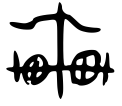
Chinese Studies Classroom: In ancient script, the character “車” (chē) is a pictograph, resembling the shape of a horse-drawn carriage.
Simplified character:

出租車/出租车 [chūzū chē] N. taxi. 坐出租车更快。It’s faster to take a taxi.
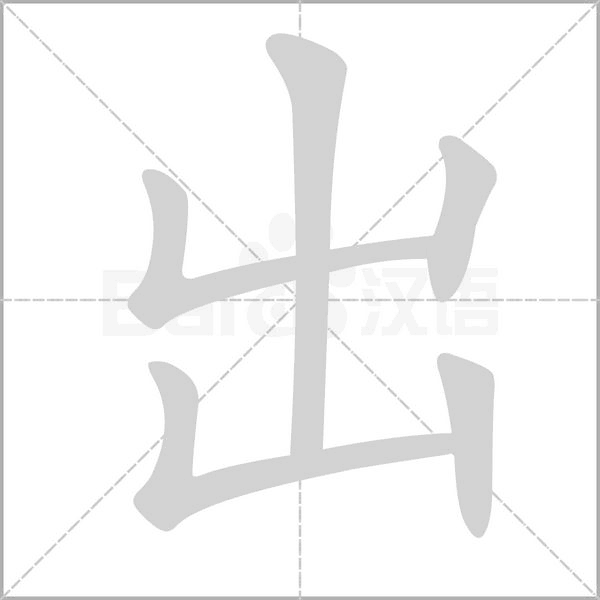
chū: go out; to exit
radical: 屮 (chè; newly sprouted plants)
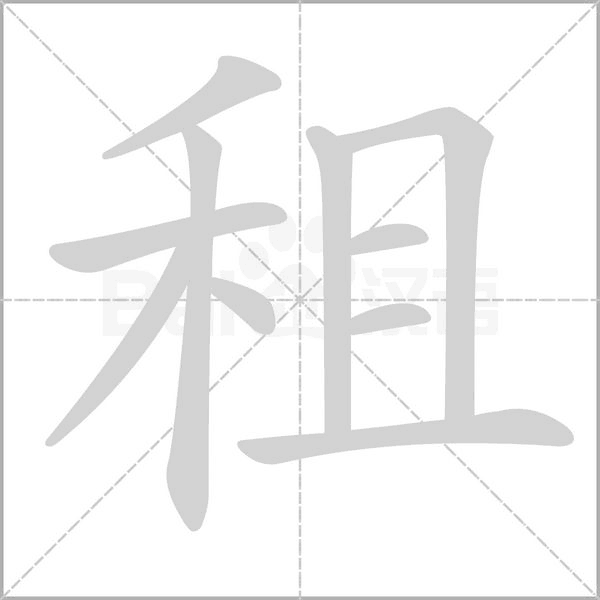
zū: to rent; to lease
radical: 禾 (hé; standing grain)
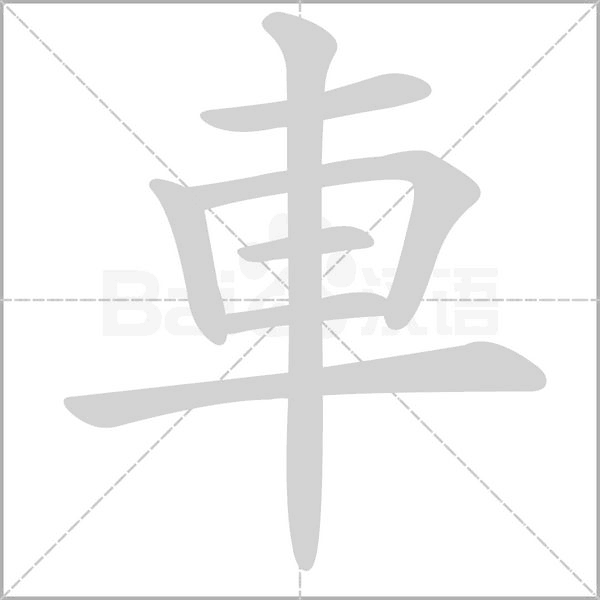
chē: vehicle; means of transportation
radical: 車
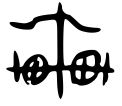
Chinese Studies Classroom: In ancient script, the character “車” (chē) is a pictograph, resembling the shape of a horse-drawn carriage.
Simplified character:
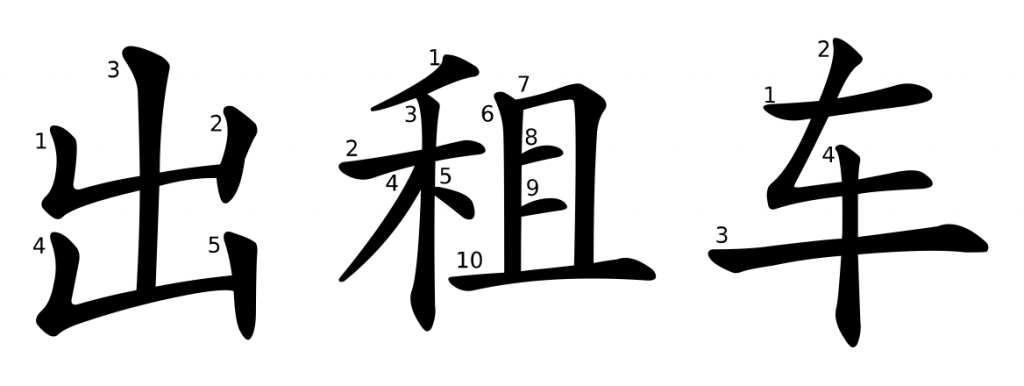
應該/应该 [yīnggāi] Modal verb. should. 你應該少說英文/你应该少说英文。You should speak less English.
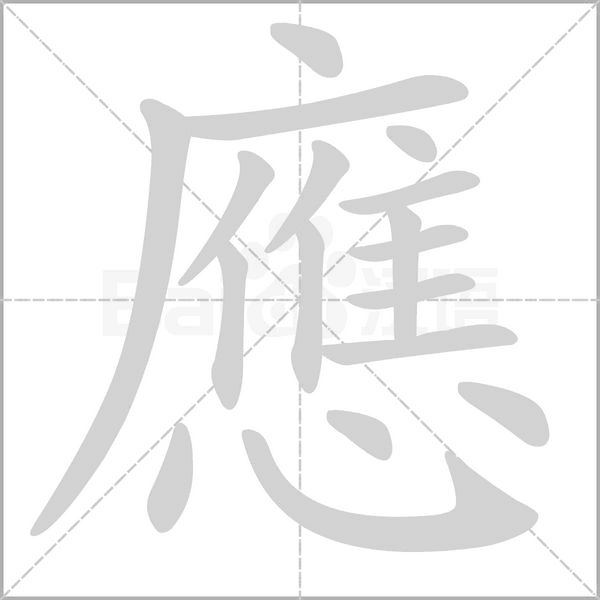
yīng: agree; be supposed to
radical: 广
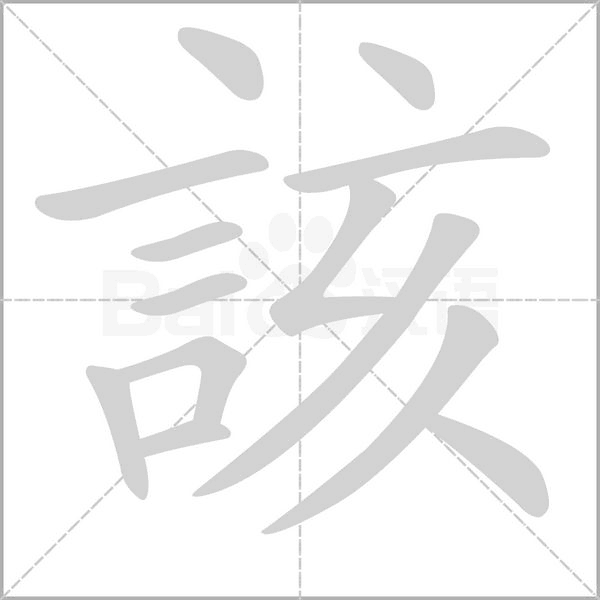
gāi: should, ought to
radical: 言 (yán; language)
Simplified character:
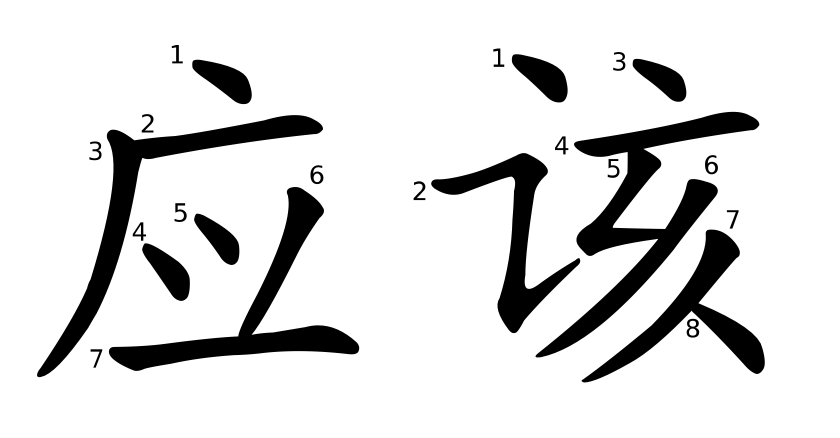
幸虧/幸亏 [xìngkuī] Adv. luckily. 幸虧我帶傘了/幸亏我带伞了。Thank God I brought my umbrella.
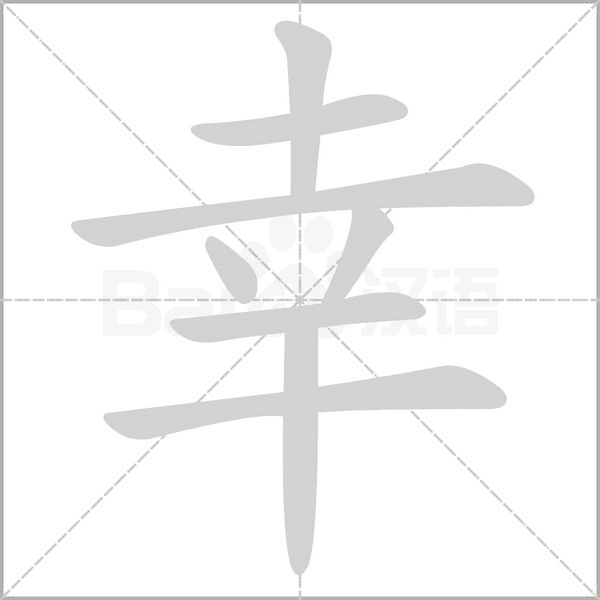
xìng: lucky; fortunate
radical: 土
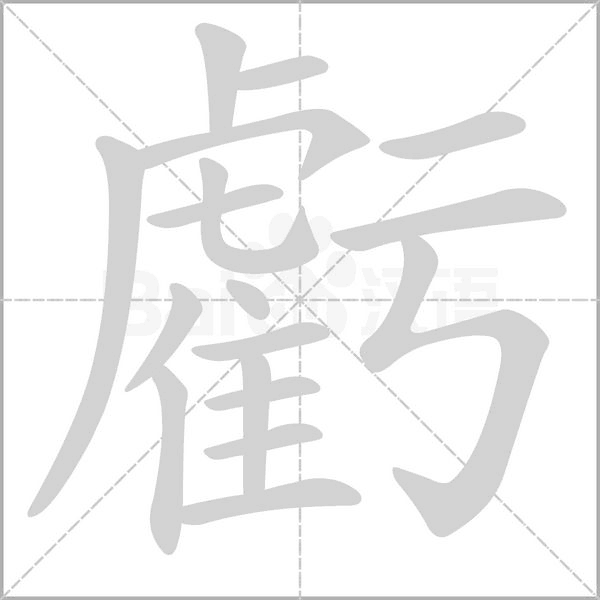
kuī: loss; deficiency; a certain reason has helped to avoid a bad outcome
radical: 虍 (hǔ; tiger)
Simplified character:
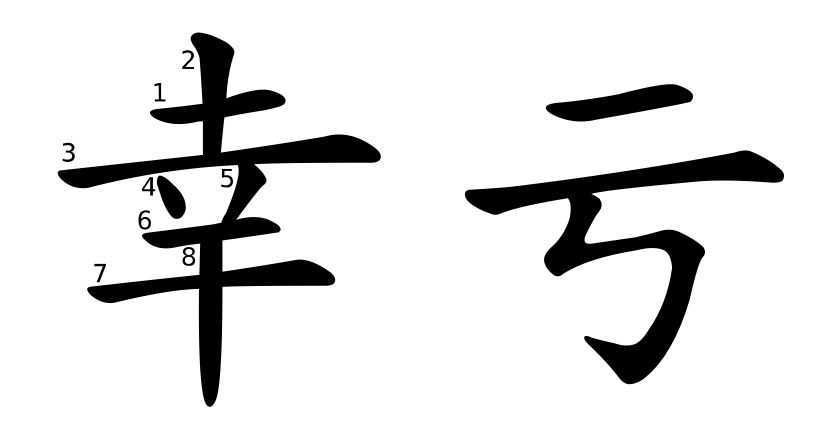
風景/风景 [fēngjǐng] N. scenery. 中國的風景很美/中国的风景很美。The scenery in China is beautiful.
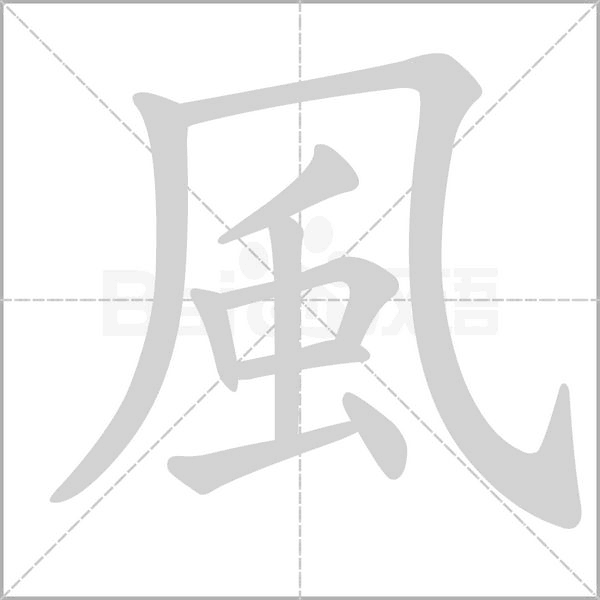
fēng: wind
radical: 風
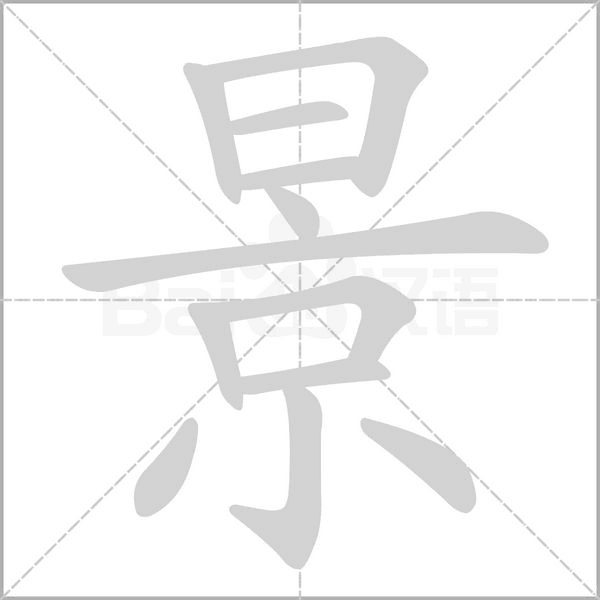
jǐng: scenery
radical: 日(rì; sun)
Simplified character:
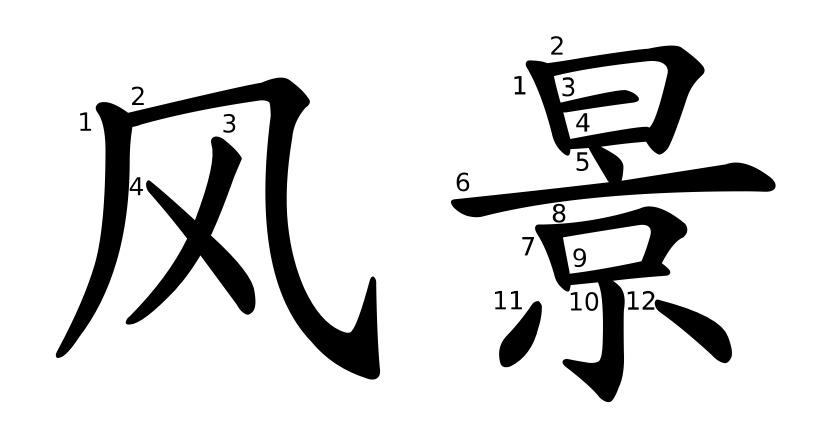
字典 [zìdiǎn] N. dictionary. 我要查字典。I’ll look it up in the dictionary.
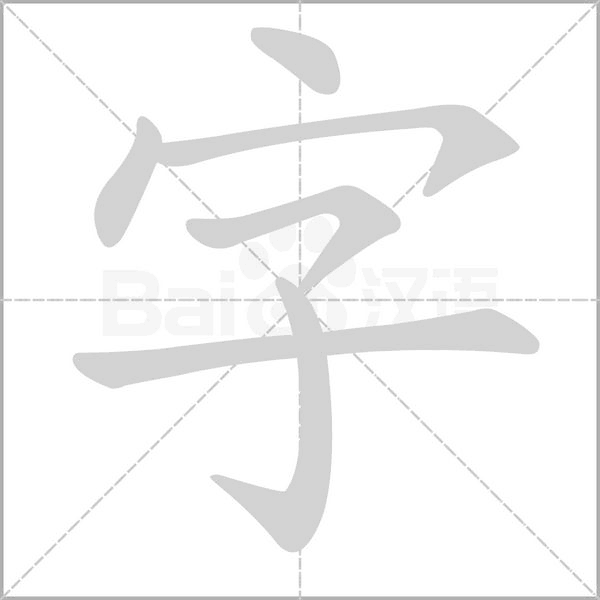
zì: character; word
radical: 宀 (mián, roof)
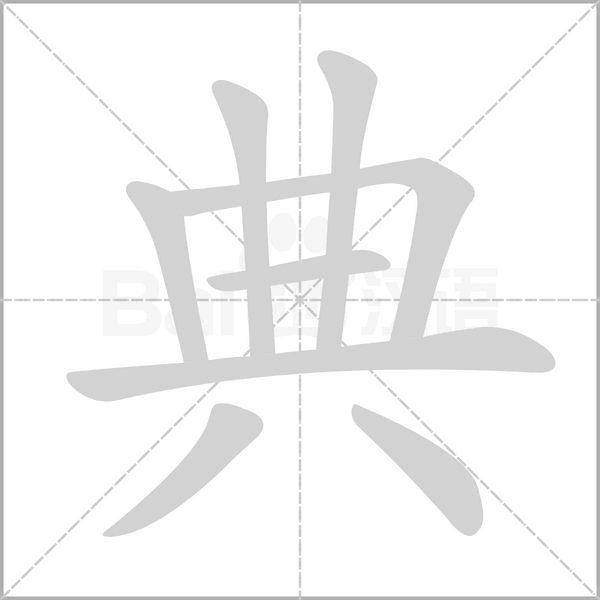
diǎn: ancient books and records
radical: 八
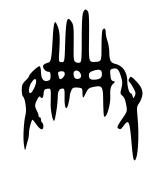
Chinese Studies Classroom: In ancient script, the character “典” resembled the image of hands holding bamboo slips. Therefore, the original meaning of “典” referred to important documents. Later, it extended to meanings such as ceremony, allusion, and dictionary.
Both traditional and simplified characters are written as:
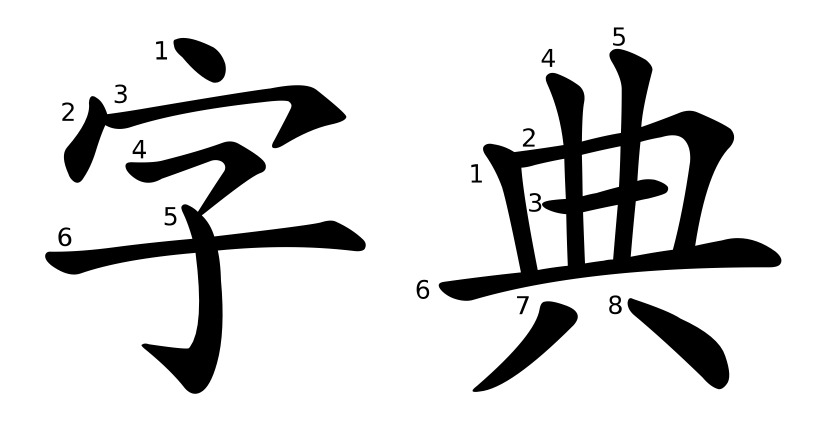
或者 [huòzhě] Conj. or. 中國菜或者美國菜我都喜歡/中国菜或者美国菜我都喜欢。I like either Chinese or American food.
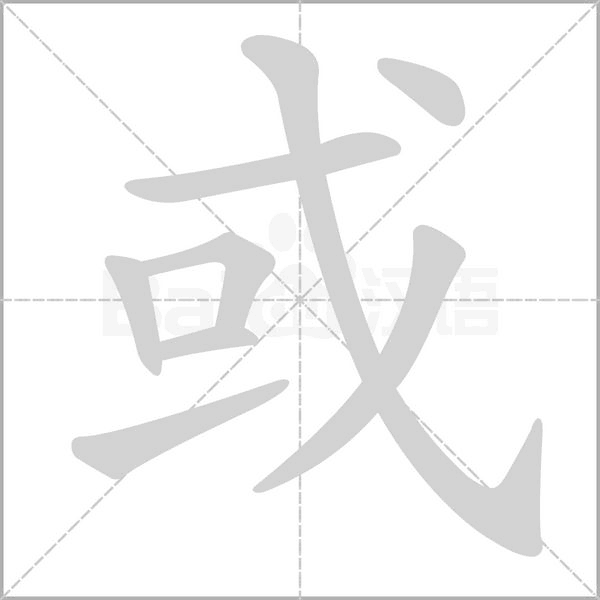
huò: or
radical: 戈 (gē; dagger-axe)
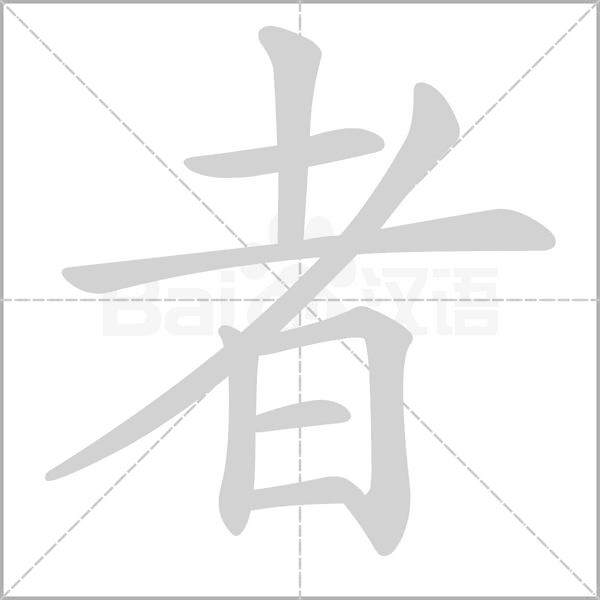
zhě: the one who, the thing that
radical: 耂 (lǎo; the aged)
Both traditional and simplified characters are written as:
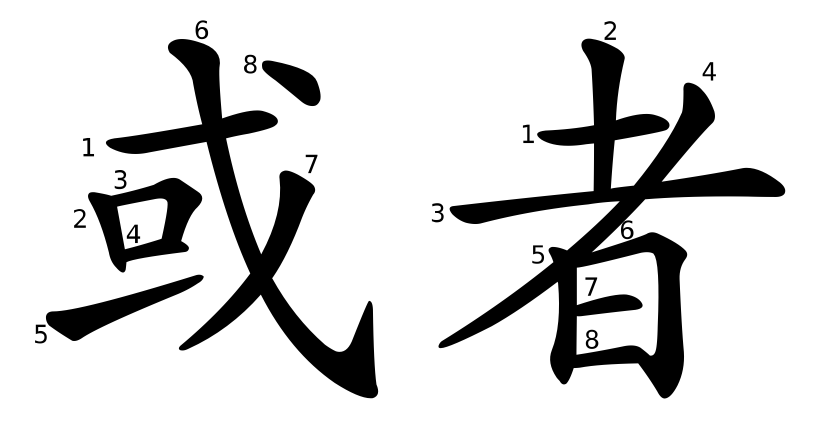
機場/机场 [jīchǎng] N. airport. 北京的機場很大/北京的机场很大。The airport in Beijing is very large.
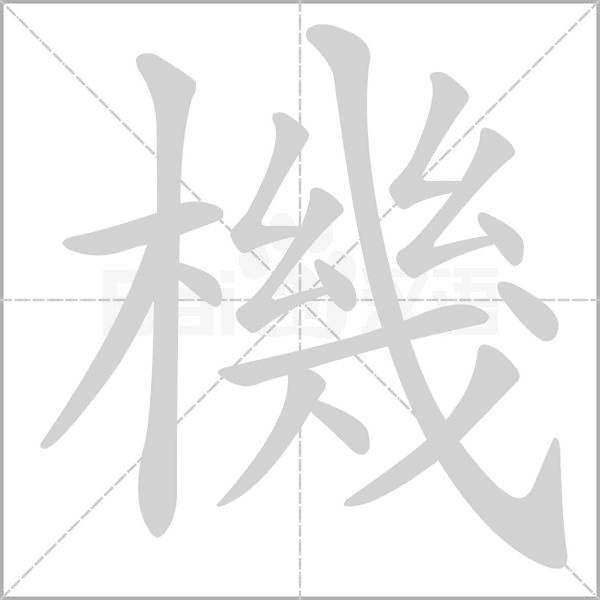
jī: machine; aircraft; opportunity
radical: 木 (mù; wood)
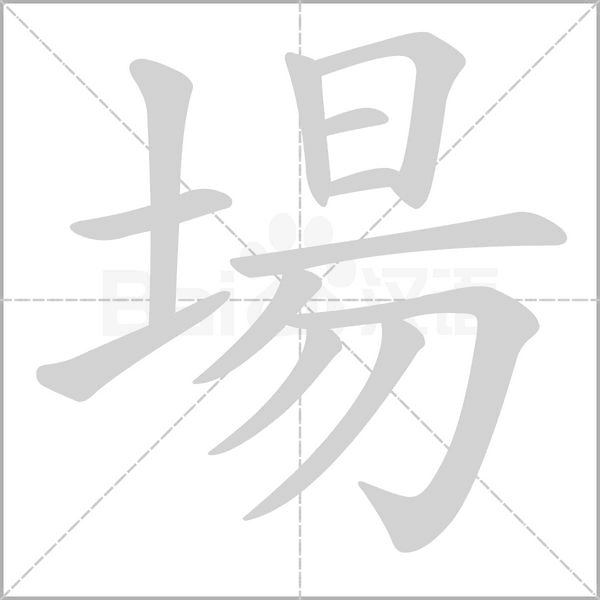
chǎng: field
radical: 土 (tǔ; soil)
Traditional character:
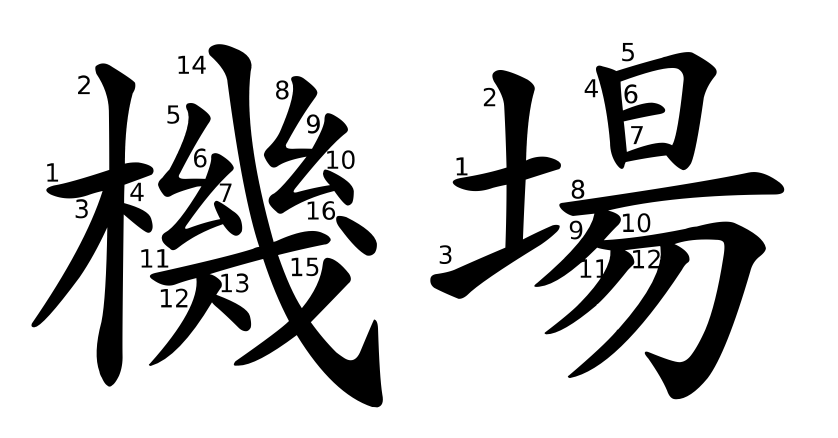
Simplified character:
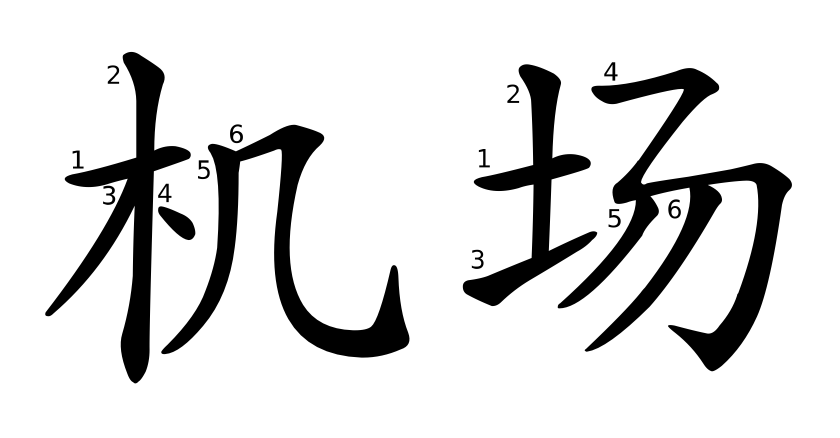
挺好 [tǐnghǎo] VP. pretty good. 我最近挺好的。I’ve been doing quite well recently.
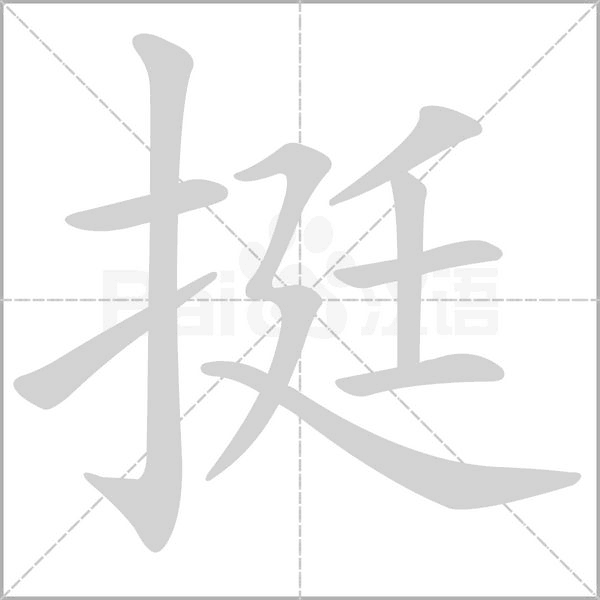
tǐng: quite
radical: 扌(shǒu; hand)
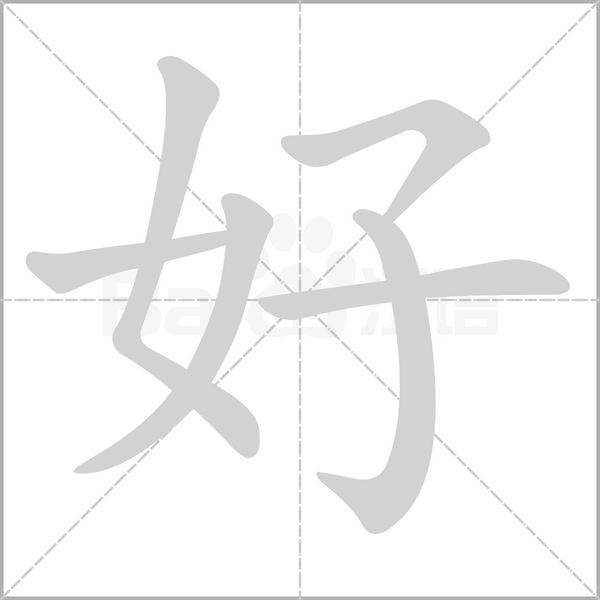
hǎo: good; nice; kind
radical: 女 (nǚ; female)

Chinese Studies Classroom: In oracle bone script, the left side of “好” is “女,” which can represent a woman or a mother, and the right side is “子,” which can represent a child or a male. One interpretation is that in matrilineal societies, women were highly respected, partly due to their ability to bear and raise children. The meaning of “好” as “good” or “beautiful” likely stems from this association with women’s role in reproduction and child-rearing. In ancient times, the act of women giving birth and raising children was regarded as a virtue, which led to the extension of the meaning of “good” or “beautiful.”
Both traditional and simplified characters are written as:
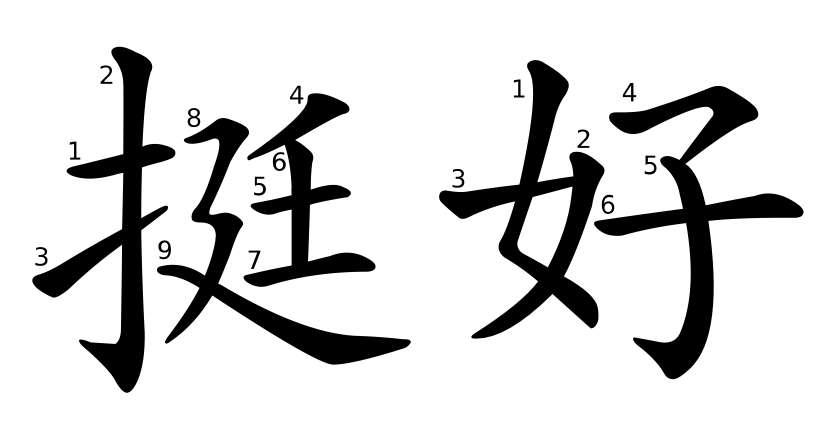
客氣/客气 [kèqi] Adj. polite. 不客氣/不客气。You are welcome.
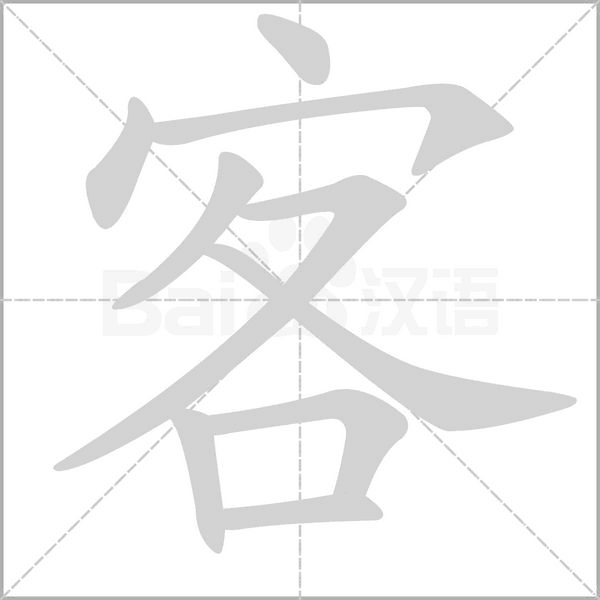
kè: guest; visitor
radical: 宀 (mián; roof)
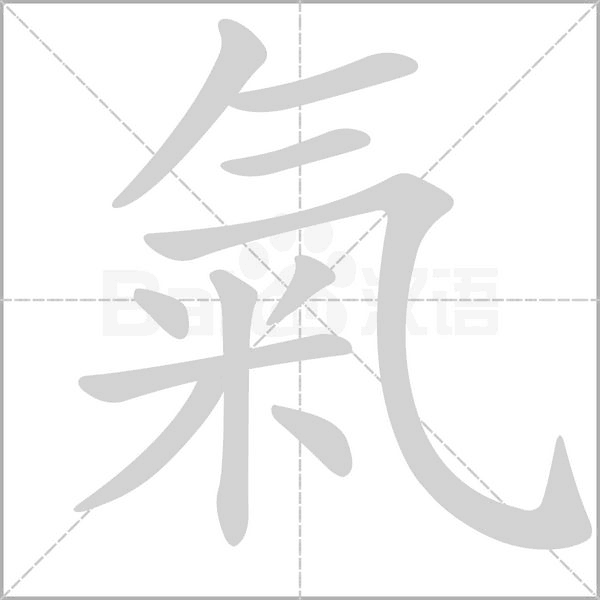
qì: air; breath; spirit
radical: 气 (qì; air)

Chinese Studies Classroom: In oracle bone script, the character “氣” is written as three horizontal lines, simulating the state of clouds or air floating in the sky. It later extended to mean “air” or “gas.”
Simplified character:
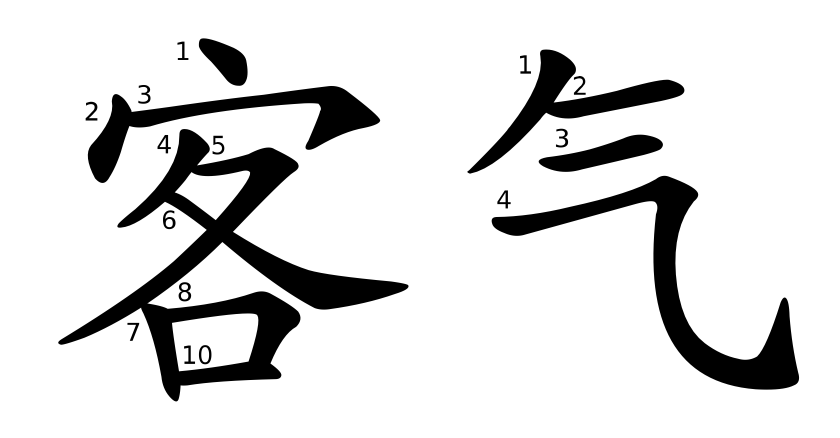
也許/也许 [yěxǔ] Adv. perhaps. 也許吧/也许吧。Perhaps.
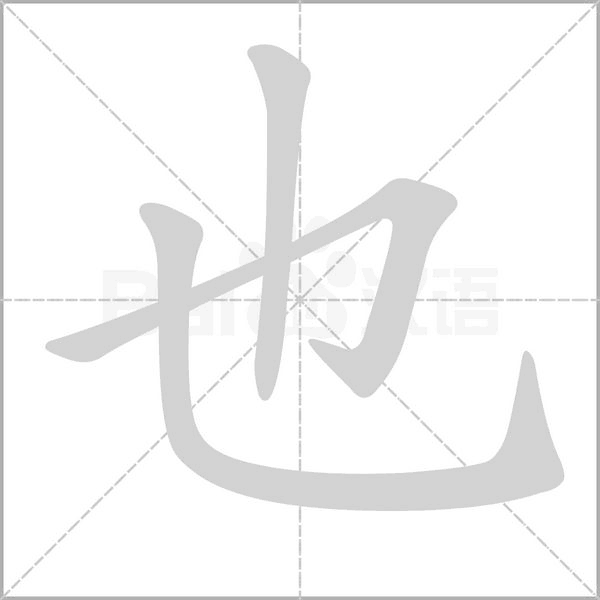
yě: also; too; as well
radical: 乙
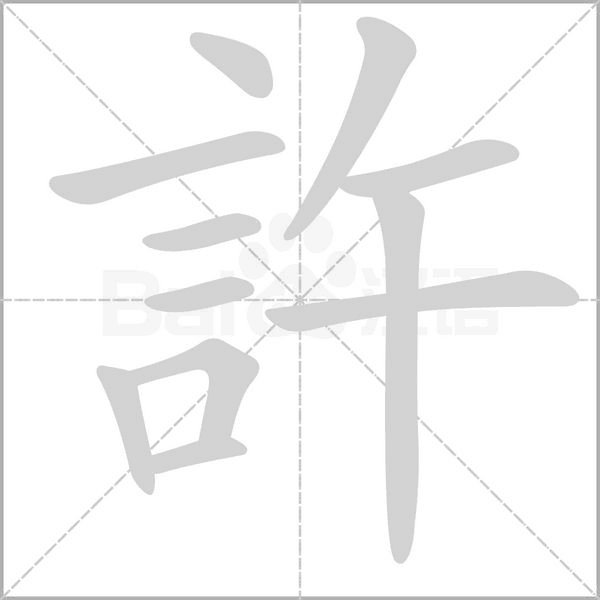
xǔ: allow; perhaps
radical: 言 (yán; language)
Simplified character:
